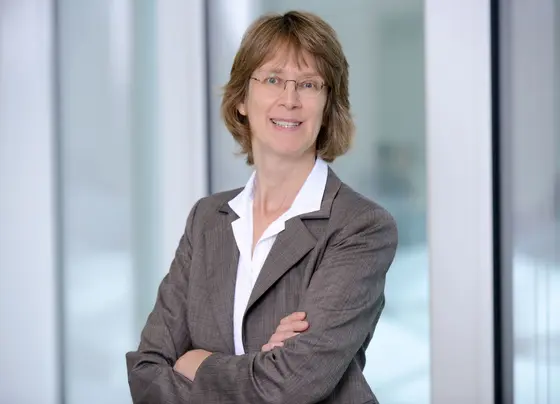Dr. Weg-Remers, many people who have been diagnosed with cancer are concerned about their diet. In most cases, this is because they hope that certain foods – or avoiding them – can prevent the disease from recurring or spreading. A multitude of recommendations of this kind are floating around on the Internet and many callers at the Cancer Information Service have questions about this topic.
Yes, that's right. For example, people frequently ask whether eating sugar increases tumor growth. There are in fact observations indicating that the energy metabolism of cancer cells differs from normal cells. But it has also become clear that this does not hold true for all cells, nor for all types of cancer or disease situations. Therefore, it is not necessary to completely abstain from sugar. Current dietary guidelines for cancer patients even clearly state that the health benefits of a diet that entirely foregoes sugar and possibly also other carbohydrates have not been proven to date.
Is it possible to “starve“ cancer?
Foregoing carbohydrates altogether or fasting is usually not beneficial for cancer patients. Most of them cannot afford losing a lot of weight. However, cancer patients who are overweight despite their disease may consider eating a diet that is lower in carbohydrates, but they should do so only under medical guidance.
Coffee has also often been suspected to promote cancer.
Coffee appears to be better than its reputation, though. At least, no harmful effect has been proven so far. On the contrary, studies have revealed first indications of a protective effect, because coffee contains many important substances that are also found in fruit and vegetables. However, people who are being treated for cancer may be well advised to ask their doctors whether they would expect interactions between coffee and the medications there are taking.
De-acidifying with alkaline foods, detoxifying with detox smoothies, body cleansing with juices or teas – these are other key words often heard after cancer treatment.
Up until now, there is no scientific proof that cancer patients need detoxifying, de-acidifying or “removing“ toxins. Even after stressful treatments such as chemotherapy, the body is able to detoxify itself without any help from outside. Most chemotherapy drugs are excreted within a few hours or days by the intestine and the kidneys. And as to “body cleansing“: Many hypotheses behind this idea are no longer tenable today. The theories, many of which are centuries old, no longer agree with what we know now about human metabolism and the course of diseases such as cancer. I am afraid many of these offers that cancer patients come across, for example, on the Internet are purely commercial.
Are there any special diets that can be recommended in good conscience for cancer patients?
There are no studies that clearly prove the effectiveness of special cancer diets. What we basically know today is that any diet that lacks in variety is rather more harmful than healthful. This also holds true for so-called superfoods; these are foods that are supposed to have a special positive effect on health – such as chia seeds, matcha tea or beets.
When assessing special dietary concepts I recommend applying a differentiated perspective that neither demonizes nor idealizes. Instead of betting on a special diet or superfoods, it is more recommendable to eat a diet that is as varied and well-balanced as possible. If there is a danger of malnutrition caused by the disease, cancer patients may need a medically supervised dietary treatment.
The Cancer Information Service (KID) is available daily from 8 a.m. to 8 p.m. at 0800 420 30 40 (toll-free within Germany).
www.krebsinformationsdienst.de



